BILL GATES: 2008 INTERNATIONAL CONSUMER ELECTRONICS SHOW...
Bill Gates: 2008 International Consumer Electronics Show KeynoteRemarks by Bill Gates, Microsoft Chairman2008 International Consumer Electronics ShowLas Vegas, NevadaJan. 6, 2008
Related LinksWebcast: Bill Gates at CESWatch the webcast of Bill Gates’ keynote address at 2008 International CES.•View the keynote (1 hr.)•View keynote highlights (5 min 47 sec)•Broadcast-Quality Broll: PressPass Broadcast NewsroomMicrosoft Chairman Bill Gates delivers his keynote address to the 2008 Consumer Electronics Show in Las Vegas, Nev. Jan. 6, 2008.Click for high-res version BILL GATES: Good evening. It's great to be here and see all the exciting things going on, the fulfillment of so many dreams and promises over the years. My first keynote was in 1994, a long time ago. That was a time when Windows 95 was just coming together, the Internet was just getting started, and it was within a few years of that that we entered the start of what we call the first digital decade. During that decade, the PC install base grew to over one billion machines. Broadband went from almost nothing to over 250 million users. Mobile phones achieved a penetration of over 40 percent of the people in the world. Digital photos moved from being a film-based activity to being something that's done through the power of software. And music went through that same transformation where today your ability to organize, select and communicate is driven fully by the power of software. The trend here is clear: all media and entertainment will be software driven. The first digital decade has been fantastically successful.The trend to have information wherever you want, to have Web sites get richer, and allow business activity as well as consumer activity, taking the full screen PC and making it better and better for those experiences, customizing things so people get exactly what they want. Ten years ago, I talked about some pieces that go into this. I talked about the AutoPC. Well, today we have Ford Sync, you'll get an update on that, which is exactly that vision. I talked about the handheld PC, and of course intelligent phones, including Windows Mobile Smartphones, are a huge part of the market today with software allowing them to do richer and richer applications. The idea of the TV meeting the Internet - well, we've really kicked that off in a big way with Media Room now connecting up to over a million users, and people for the first time realizing they can build content that's unique, a news show where you see only the things you're interested in, or taking rich complex events, like elections, and allowing people to navigate those in new ways.So we've made a lot of progress. The first digital decade has been a great success. And thousands of companies here have worked together - whether it's to do great hardware, great applications, driving the platform forward or the content that comes in from movies to videogames. Now, this is just the beginning. There's nothing holding us back from going much faster and much further in the second digital decade.Before I get to that, I want to talk about the fact that this is my last keynote. It's the middle of this year, in July, that I'll move from being a full-time employee at Microsoft to working full-time at the foundation, as you heard. So this will be the first time since I was 17 that I won't have my full-time Microsoft job. And I'm not really sure what that last day is going to be like. It could be a bit strange, you know - what do you do on your last day? So I have some friends to help me prepare for that. So we got together and did a little video. So let's take a look at that.(Video segment.)I really don't think it's an accurate representation of what's likely to happen, but it was fun to put together. The transition, in fact, has been going very well, with Ray Ozzie and Craig Mundie stepping up to take over my full-time responsibilities. Of course, after the transition I'll have a few projects that I pick, that are still about the magic of software, including things like how software can advance education, and how software can advance healthcare around the world.The Second Digital DecadeRobbie Bach, Microsoft President, Entertainment and Devices Division, speaks during the 2008 Consumer Electronics Show in Las Vegas, Nev. Jan. 6, 2008.Click for high-res version So the foundation of the second digital decade, the advances taking place there will be very, very important in that thrust. The second digital decade will be more focused on connecting people. It will be more focused on being user-centric. Microsoft will deliver platforms that will let people build applications. Those applications will run not only on the PC, they'll run up in the Internet, or in the cloud, as we say, on the phone, in the car, in the TV. The applications will use the best of rich platforms and those Internet services.When we talk about services, we mean a huge variety of things, and things yet to be invented, the mapping services, the payment services, the friends lists, and storage that you can have in a very effective way up in the cloud itself. These services will span work and business. The personal computer has always been a device that spans that boundary. That's been part of the beauty of it. So even things that are incredibly oriented to the business side we'll be able to up-scale, and simplify them with cloud-based approaches.So a lot of big advances will underlie this new class of applications. Things that we haven't tackled yet, like the ultimate change to all of TV, or to reading, or to healthcare and education. Those will be enabled by these elements. The three key elements I'd highlight are first, high definition experiences everywhere. Screen technology is getting better, not just the high definition displays, but projection that will let us project onto every wall. Your desk, we won't just have the computer on the desk, but in the desk, so a meeting room table as you're collaborating, and the living room if you want to briefing up and play games with something like a Surface, or organize your photos. It will just be there, and easy to manipulate, easy to change and have multiple people connect up.The quality of the rendering, whether it's playing something like a game, or walking through the downtown with a Virtual Earth type concept will be very, very rich. 3D environments will exist for many of the Web experiences, walking through a store, meeting people in a social 3D environment. So we'll apply high quality video, high quality audio in a very pervasive way.Second, all of these rich devices will be service connected. And so getting the latest software, the browsing applications, and getting your data, you'll just take that for granted. The idea that when you take a photo that it shows up in the place that you'd like it to show up, that would be extremely simple. No longer will users have to bridge between the devices, and they're the ones who have to remember what's where. By having essentially the master of what's going on stored up in the cloud, things like docking up, connecting, searching across devices will be very simple, and the information, of course, can be shared across many users in a very strong way.In fact, if you just pick up the device and authenticate who you are, then you'll connect up to your information. So when you get a new phone, or want to borrow a device it will be a very, very simple thing to be up and running in a strong way.As you're moving around, even your activities that you want to have handy, with stills and motion, and so organizing memories that you have, the memories of your kids growing up, and having the system find what's relevant to you, presented in a rich way, that digital memory application will be one that is broadly used and very important. And yet, today without these capabilities, it's something that you can't achieve. The devices will know your context, they'll know your location.Finally, the third element, perhaps one that people underestimate the most, I would say, is the power of natural user interface. The first digital decade was largely driven by the keyboard and the mouse. Just in the last two years we've started to see the emergence of other modes of interaction. Touch on the Windows PC, touch on the iPhone, the Surface device that we're talking about. We started to see speech, - the Tellme capability - built into the phone, the Ford Sync, where you get to talk and interact with your media or your phone capabilities.The reaction to those natural interface implementations has been very dramatic. People are very interested in a simpler way of navigating the information. So the pen, with ink, touch, visual recognition, all of these come together with the other elements to create very new experiences. Gestures so that you can get things done, sitting in front of the TV set. So we're just at the beginning of this, and this is something the software industry will build into the platform, so individual developers don't have to go off and do that complicated work.Even areas where we haven't thought about software empowerment, like the retail experience: walking in and picking a product you want to customize, or home automation is finally, I think, simple enough that we can bring it forward with natural user interface. So some key elements that are very different, and show that the long-term research and innovation that we've done over the previous years will come together and be drivers for these next ten years.A key building block certainly for Microsoft is the Windows platform. We'll evolve that and use it as really the centerpiece building block. This actually was an incredible year for PCs. PC sales grew over 13 percent. Of course, that's a really gigantic base, and it's been amazing to see that. Next year, again, the prediction is for double-digit growth. A year ago, we launched Vista. I'm pleased to say that we've got over 100 million people using Vista now, and that's a very significant milestone for the kind of applications development, and special hardware work that we think is very important. We have great partners building neat new form factor PCs using unique capabilities. A lot of these are portable devices. A lot of them are far more stylish than anything you've seen before, smaller, fitting into new ways that people use personal computers.We have online services. We and many other companies are seeing incredible growth in those. For us, our Windows Live now, over 400 million people using those services, including the new version rolled out a few months ago. Windows Mobile, over 10 million new users last year, and double that in the next year. So quite a variety of form factors, and a growing platform there because as the capabilities of the phone have now gotten so rich, the breadth of applications that you want to run there is getting larger and larger. And that is certainly an environment where the input has been a limiting factor, and the new platform capabilities will really allow you to do applications that were impossible before.Connected Experiences: Windows Vista, Windows Live and Windows MobileI wanted to give you a quick glimpse of some of the things that excite us about the latest developments with Vista Live and Mobile, so let me ask Mika Krammer, who is the director of Windows Product Management, to come up and show us some of the highlights of what I've been talking about. Welcome, Mika.MIKA KRAMMER: Thank you, Bill. (Applause.)My life is my family, my friends, work, my lifeline is Windows. Windows Vista, Windows Live, Windows Mobile connect and integrate my life in a way that's simple and familiar. Gone are the days of multiple sign-ins, and multiple contact lists, multiple hassles. With my single Windows Live ID all my services, my e-mail, my calendar, are integrated, they're personalized, and they're connected so that with one single Live ID they all come to life.Tonight I want to share with you some of what's fresh and new, some of what helps me stay connected. I have to tell you, one of the things that I really struggle with is making sure that everyone is in the right place at the right time. With the new Windows Live calendar, I can overlay my mom's calendar and my husband's calendar so that we can organize and plan.I'm throwing a party for my friend Gina, and I need to see if my mom can help and take the kids. I see here that she's available, which is great. I am sure that she would be more than happy to take my three very well-behaved boys. Now I want to see who can come to the party. Here's a new Windows Live event. I've used it to invite guests, keep track of who can come, and I'm really entertained by reading the very creative excuses from those who can't. I can also go back on this site, and everyone who came to the party can come back on this site, and we can share photos with everyone. There's only one problem in that I forgot to invite Bill. Easy fix, all I have to do, because I've logged on with my Windows Live ID, I don't have to remember everyone's e-mail, I don't have to reenter everyone's e-mail, because it's right here. Select Bill and send him a quick note - bring your snowboard.I also want to share a picture of our rendezvous spot and where we're going, and I know that picture is somewhere here in my computer. If you're like me, you know there's some picture somewhere on your computer, but sometimes it's kind of tricky to find the one you want. Well, with the Windows Live Photo Gallery, I can find what I want and edit in an instant. Check this out. I've got multiple pictures of the same location. I can select them all, and very easily create an amazing panoramic photo. But if you're like most people - snapshots in a shoebox - so the pictures are in your computer, on your phone, in your camera, no one gets to see them. With Windows Live, it's so much easier to share. Check that out, isn't that something you'd want to share? (Applause.)All right. All I have to do is fix it up a little bit, take out the rough edges, and I can share it in e-mail, or I can share it on the Web. I can either publish it on Flickr or to my Windows Live Space. I think I'll go to my Windows Live Space. Sharing pictures has never been easier. It takes me to my Windows Live Space, and it will be updated immediately for everyone to see.Now in terms of my Live Space, I also want to get people excited about the trip, and so what I want to do is be able to provide a picture of Whistler, and snowboarding. With Windows Live video search, it's a snap. All I have to do is hit Whistler and snowboarding, and I've been checking out these videos, and rather than have to download every single video every time I want to see one, all I have to do is run my cursor on top and it's there in an instant. All I have to do is now upload my site, and I'll do that later.When I'm on the go, Windows comes with me. With Windows Live Mobile, I can search the Web, I can check out local traffic, I can instant message, and I can share photos. Recently, I just with one click sent this photo from Vegas up onto my Live Space. You know, now the old adage that what happens in Vegas stays in Vegas no longer applies, it's up there on my Space for everyone to see. We all lead busy lives, and quite frankly we all could use a little help. With Windows Live, Windows Vista, Windows Mobile what's familiar is now integrated and connected, what's achievable is redefined.Thank you. (Applause.)Microsoft Surface in RetailBILL GATES: Well, I got invited to that snowboard thing, so I've got to buy one of these things. And so I'm in a snowboard store, and what they've got for me is a Microsoft Surface. And that's going to let me customize the board, let my personality show through. Of course, what it is is just a Windows PC with some camera hardware and some special software that came out of our research work that recognizes any gestures that I make. It recognizes objects, it recognizes multiple fingers. It's very, very rich. So I can take this board and say, okay, that looks good, I really want to see what I can do to the top and the bottom, and it's just plain right now, so let's design my own. I can take some boards that other people have done and thought was good, pick one of those and bring that down, put that pattern on my top, and that's the old free ride, looks good.Now let me select some of these decals, I'll take that snowflake, if I want color I just say, ’OK, this is a color wheel, slide around, that looks good.’ Now, you know, I don't know what size I want, but let me move it on here so I can see how it looks, put it right there, perfect. So that side has probably got enough on it. Let me go to the other side and actually put a signature, so when I'm in the air and people are down below me, they'll know what's up there. I'll take that and size that, and put it over here on the bottom of my board. There we go. I've got something that looks pretty good. In fact, let me finish by putting some bindings on here, so I know exactly what that's going to look like.And I think that's a good-looking snowboard. But really, before I actually buy it, I would like to show it to my friends. So I simply put my phone down - that gets recognized - and I get the choice of either just putting on the phone, or putting it up on the Internet on Windows Live. I'll select Windows Live as my option there. It goes up and now it's going to access it, come back and do more work on it. So it's been a fun, simple retail experience. I didn't need to learn anything to be able to use that application.We see Surface showing up in many, many different situations, maybe even here in Las Vegas as a new flexible interface.NBC, MSN to Bring the Olympics to the Web with SilverlightAnother big announcement for us last year was the introduction of a Web technology called Silverlight, the ability to do video and animation in a very rich way. Silverlight came out with some neat capabilities shipped in its first version. It's gotten a great response. We see it as the runtime that will let people do new media experiences. It brings the design world and the rich development tools world together on top of a great runtime that we will make pervasive. I'm pleased to announce today that we have a perfect partner to showcase Silverlight, and that is that NBC has chosen Microsoft, the MSN Group, as its exclusive U.S. partner for online video footage for the 2008 Olympics. And what we'll do is, we'll take the 3,600 hours of all of the different events, and we'll make it available live, we'll make it available on demand, and we'll let you customize so that you can see what you're interested in, be alerted of the different things taking place. And this type of live event programming is something MSN has gotten very good at with events like Live Earth. And so it's going to let us illustrate why TV is going to be very different. Events like this in the broadcast format just aren't as satisfying, not as great as we'll be able to make the Olympics.Let's go ahead and hear from NBC their perspective on the unique things we'll do together.(Video segment.)Well, I'll certainly enjoy the Olympics as a spectator. I can watch all the different sports, and all the things that really grab me. So I think that a partnership there is going to be a very important one.Now I want to invite on stage Robbie Bach, who is the president of our Entertainment and Devices Division. They're doing some amazing things to drive this vision of connected experience. So let's hear from Robbie about how that's going.ROBBIE BACH: Thanks, Bill. Good to see you.Robbie Bach: Connected Entertainment with Windows Gaming, Xbox and ZuneSo it's good to be here again to talk about connected entertainment. Last year I described connected entertainment to you as the process of enabling people to get their video, their music, their gaming on any device and any place where they want it. I want to talk about the successes we've had in 2007 in delivering on that, and also give you a peek at some of the things that are coming in the future to continue to building connected entertainment.First we'll start with gaming, and in the past year with the release of Vista, Windows gaming has continue to grow and be strong. Vista was a great operating system for gaming. It's doing a fabulous job there. And Windows is far and away the largest gaming platform in the world and continues to grow.Now, Xbox on a worldwide basis has had tremendous success, as well, 17.7 million consoles shipped to date. And we are on track this year in the U.S. to have the biggest year ever in videogame history in the United States. In the U.S., through November, we did US$3.5 billion of business. That's $1 billion more than Nintendo did on the Wii, and it's $2 billion more than Sony did on the PS3. And if you look at spend on Xbox 360 games, it's more than the spending on Wii and PS3 games combined. So our Xbox business is in a very, very good place.In addition, we continue to grow on Xbox Live, the online gaming service that supports Xbox. I'm excited to announce tonight that we have passed the 10 million member mark for members on Xbox Live, that's six months faster than we expected to get to that number. So a tremendous momentum around what's going on with Xbox Live. Certainly, a lot of the time people on Xbox Live, they're playing games, but they are also enjoying TV and movies, and we have two very important announcements on that front tonight, as well.DVR Anywhere and Connected TV Experiences: Xbox, Media Center and Media RoomFirst, I'm excited to announce that ABC and Disney will be bringing their TV shows to Xbox Live this month. On Disney that means shows like Hanna Montana, High School Musical, and on ABC top rated shows like Lost, Grey's Anatomy, Desperate Housewives and others. This is a tremendous opportunity for us to continue to expand video content on Xbox and bring more consumers into the Xbox Live experience.In addition, we're not only adding in the TV space, we're also adding in the movie space. We're excited to announce tonight that MGM is bringing its library of films to Xbox Live. This includes classics like Rocky, Terminator, Silence of the Lambs, Legally Blonde and many more. Xbox Live, when we're done integrating this content, will offer more than twice as many hours of on-demand, high definition content as any cable or satellite provider. Over 35 studios and networks are supporting us now, and it's quite clear that online distribution is going to be a powerful force in the future of video.Our approach to television is not just through Xbox, of course. Media Center continues its success and is on the vast majority of the 100 million-plus Vista PCs that are in the market today. And in addition to having Media Center on the PC, it's very important that we increase what's called the Extender technology, this is the ability to take content that's on a Media Center PC and extend it through a TV. Now, Xbox 360 is the first place we got started with the Extender technology, and that's been quite successful. Tonight we are announcing that Samsung and HP will also be introducing new extender devices that connect the TV. And HP will be the first to build Extender into their new high definition TVs with their Media Smart TV. So that's on the Media Center side.Finally, in the TV space we have our product Media Room. Now, Media Room is our IPTV service that delivers high definition TV, DVR, and interactivity through top service providers like British Telecom, Deutsche Telecom, AT&T, and 17 others around the world. To date we now have 1 million TV screens on our Media Room service, and that number is advancing very, very rapidly. We also have some key announcements in the Media Room space tonight. First is a technology which we call DVR Anywhere. This is the ability to record on your Media Room system content in one place, and distribute it to other TVs around the house that are on the network.We also are announcing some interactive applications we're developing with Showtime, TNT, and CNN. This will give you the ability, for example, in a NASCAR race to product your view of what the race was like. So I can pick car number 35, or I can go into the pit and watch car 22 and its pit stop, and produce that interactive experience myself. With CNN we're doing an application around the election, and the ability for people to customize and understand the political situation, and the election process in the United States, in a very interactive way on the TV.The final announcement around Media Room, last year here we talked about Xbox 360 being a set top box for the Media Room service. This year we're excited to announce that British Telecom will be the first operator to provide that capability, and you'll be able to buy an Xbox 360 through BT, use it as a gaming console, as well as a set top box on your TV.When you look at all of this together, what we've done on Xbox and Xbox Live, what we're doing on Media Center, and what we're doing in Media Room, it's abundantly clear that building great, connected TV experiences is not a hobby for Microsoft. This is something we take quite seriously, and we think we can build a great business with great products for our customers.Music is Social, Music is Mobile: Zune and Ford SyncNow, when you go beyond that to the music space, I want to talk briefly about Zune. Now, the new versions of Zune that came out this fall are doing very, very well. We've had fabulous response to the product in reviews, and I think it's quite clear we're becoming the clear alternative to the iPod. With capabilities like subscriptions, Wi-Fi, and a social experience we think we can differentiate ourselves in this space, and we think there's plenty of opportunity for that market to grow.In fact, we've been so pleased with the results in the United States for the first time we will begin selling Zune outside the United States in Canada this spring, and there will be more opportunities for us to expand in the future.I will say that music is inherently a social experience, and we want to build on that social experience. And that's why we introduced this concept called Zune Social. Now, Zune Social is in beta right now. It has about 1.5 million people who have tried the service out initially, and we want to give you a chance to understand what Zune Social is. So I want to invite Molly O'Donnell on stage to show us how consumers can discover music through Zune Social.Molly? (Applause.)MOLLY O'DONNELL: Thank you, Robbie.ROBBIE BACH: So take us through Zune Social.MOLLY O'DONNELL: Sure, welcome to the Zune Social. Right here, let's just take a quick tour, you'll see that I'm on my personal profile page, on my Zune Social site. And at the centerpiece of the Zune Social is this Zune Card. It's your personal Zune Card which you can personalize like I did with my Zune Tag, my Zune Picks, and I even have some background wallpaper here with one of my favorite pieces of art work. What the Zune Card does is really tracks my most listened to artist, my most listened to song, and of course, I've tagged some of my favorite artists.ROBBIE BACH: So it's actually tracking everything you're doing on your Zune, on the PC, or on the device?MOLLY O'DONNELL: That's right. So my friends can see that Ted Leo, or Rufus Wainwright, or Band of Horses are some of my favorite bands. And it does that in real time, and in a dynamic way. So it's really cool for you to track, but mostly for your friends to track.The community has actually embraced this, and taken this to the next level, and they've made an application already that you can simply post your Zune Card to your Facebook page where you may spend a lot of time, or any social networking or blog site.But the really cool part of the social, it's all about people-powered music discovery. And what I mean by that is I'll show you. As I scroll down here with my friends list, you can see my friends, you can see what they've been listening to, the last three tracks, Edie Pres, I think this is you.ROBBIE BACH: So, let's go take a look. We should take a look at my page, and see what's been on there.MOLLY O'DONNELL: OK, great. So, here you are, and I can look down the right-hand side of Robbie's page, and I can discover his most recently played songs.ROBBIE BACH: Clearly some of this music is dating me a bit.MOLLY O'DONNELL: Well, it's there for everyone to see.ROBBIE BACH: There you go.MOLLY O'DONNELL: We have your favorites and your most played artists. I notice up here some of your favorites include Jack Johnson, John Legend, The Fray. The top of the list is The Shins, and The Shins are a cool band, and they happen to be huge Xbox 360 fans. So, I'm going to jump to their site. So, what we have here is the Zune social site for The Shins.ROBBIE BACH: So, they've created their own card for the band.MOLLY O'DONNELL: That's right.So, what this is, is you can see their albums, but you can also see the top played songs from the Zune Social site - and you can see the top fans of The Shins. You can see here this is yet another act of discovery, because you can say this fan that likes The Shins also likes The Silversun Pickups, and The Decemberists. If I wanted to, I could go check them out, because maybe since I like The Shins, I'll like them too. Again, a really cool act of discovery; you can spend a lot of time here.But we don't have a lot of time, so I'm going to just jump up here. You can see Sleeping Lessons. It's a bit of an old song, came out last year, but I've been meaning to buy it. I could either sample a track or simply click to buy. What that does is it closes the loop from discovery of a song to purchasing. So, you see here that I'm in Zune Marketplace, and with a click of a button I can download and then synch it to my Zune, and it's all set.ROBBIE BACH: So, now you've seen the full circle of people exploring, finding new songs, finding friends, having an experience, and ultimately buying and helping to build the music business in a stronger way.MOLLY O'DONNELL: That's right. And I don't know about you, Robbie, I'm a fulltime working mom, and I don't really have a lot of time to be listening to music on my PC. So, when I do listen to music, it's on my device and on the go and in a car. So, if we had a car to show you --ROBBIE BACH: Well, I think we can probably accommodate you. So, let's move from Zune Social and we'll talk about the automotive space a little bit.Microsoft launched our Microsoft auto product in Europe with Fiat, and they've done a fabulous job running our software, and then last year we announced a partnership with Ford to produce what is called Ford Sync. That's powered by our Microsoft auto software.In the United States Ford expects to ship nearly a million Sync-enabled cars next year, and they are expanding it across their line of Ford, Mercury, and Lincoln cars, including this new 2008 Lincoln MKS.Molly is in the car, and I'm going to jump in with her, and we're going to give you a sense of how this works.OK, take it away, MollyMOLLY O'DONNELL: All right. So, when I'm driving, like most people, I want my hands on the wheel, and my eyes on the road, but I also want to do a little bit of multitasking. I want to be able to access all my devices. With Sync you can just that.So, for example, the Zune that I was just talking about, or it works with any MP3 player, easily plugs into the console here, and the thousands of songs that I have loaded here are all synched to the car.Additionally I have here my Windows Mobile phone, and it will work with any Bluetooth-enabled cell phone, and all my hundreds of contacts that I want to call, my friends, my family, are all automatically downloaded and synched into my car for easy hands-free. All you need to do, you can do all of these things while driving, just with the sound of your voice.ROBBIE BACH: So, why don't we try -- let's try playing a track.MOLLY O'DONNELL: OK, great. Let's do that. Maybe you can pick one of your favorite songs.COMPUTER: Please say a command.ROBBIE BACH: Play track Cars.COMPUTER: Playing track Cars.(Music plays.)ROBBIE BACH: I like that. Now, I could do the same thing with a phone where I would say call a person, call their work, call their home, call their cell phone number, and again get that great easy experience using voice to control the system.MOLLY O'DONNELL: Absolutely.ROBBIE BACH: Fantastic.MOLLY O'DONNELL: Simple as that.ROBBIE BACH: Thanks.So, the other exciting thing about what's happening in this auto space is that that system is now upgradeable. So, one of the things that Ford is going to offer is a new upgrade to Sync, which they call 911 Assist. Basically the way 911 Assist works, if the airbag deploys on the car, the software will tell you, I'm going to make a 911 call. And unless you stop it, it will then automatically call 911 so that emergency services arrive to help you out. So, that gives you some idea of what's going on in the car space. Now, when I'm here in Vegas, we don't actually spend much time in the car, because it's actually quite difficult to get around that way, so we spend a lot of time walking, and I'm mostly on my mobile phone. So, I want to talk a little bit about Windows Mobile.Now, we all know that phones outsell PCs by about four to one, and Windows Mobile is a leader in that space. Phones are going to be a big platform. PCs are going to continue to be super important and continue to grow, but at the rate of expansion for phones, it's going to be very important for the future.Windows Mobile today outsells Blackberry, outsells iPhone. We're on pace this fiscal year to sell 20 million phones, which is almost double what we sold last year, with Windows Mobile software on it.Mobile Search and TellMe Finds What Need from the RoadNow, one of the huge growth areas is in mobile search, and voice is really going to be the natural way to use a phone with mobile search. Our TellMe service is the leader in this space with over 2 billion voice searches last year, mostly through the 411 service. In the future they're going to introduce something called Say and See, and I want to give you a chance to see that. So, I want to invite Molly back up on stage to show us that service. Molly?MOLLY O'DONNELL: Great. So, it's very simple, easy, and powerful, and let me show you how it works. You see that I've launched TellMe, and it's already identified that we're here in Las Vegas. So, if I want to search for a local business, say like movies, I can just do that. Let me show you. Push the talk button: Movies.ROBBIE BACH: Now, because it has GPS, it's going to go out and find the theatres in the area around here, correct?MOLLY O'DONNELL: It did, and it is searching right now. It's brought up the list of the closest theatres. I see here that the UA Showcase one is only about a mile away, so I'm going to select that.ROBBIE BACH: Oh, we've got to go see Sweeney Todd. We have to see this. So, get us some tickets.MOLLY O'DONNELL: OK. So, not only is it showing you show times, but it's also showing you all the selections. So, let's get Sweeney Todd. Buy what. Two tickets for Sweeney Todd at 9:20. So, searching. I think at 9:20 we should be good to go.ROBBIE BACH: Now, do I get to go to the movie at 9:20? Am I part of the invitation?MOLLY O'DONNELL: Definitely.ROBBIE BACH: Oh, that's good, that's good.MOLLY O'DONNELL: Anybody in your contacts. This is the cool part about it is you can share with anybody in your phone contacts list, and you can just press "share" and again do a press to talk, and you'll have a text message on your cell phone. So, send to Robbie Bach.ROBBIE BACH: So, now it's going to send that to my cell phone, and I should be able to pick that up.MOLLY O'DONNELL: So, it's finding you. There you are. I've shared it with you, and you should have a text waiting for you with all the information.ROBBIE BACH: Perfect. Thanks very much, Molly. That's awesome.MOLLY O'DONNELL: Thanks a lot. (Applause.)ROBBIE BACH: So, now let me come back here, and you're going to see that on my Windows Mobile phone here I have the text message here, received it from Molly. I'm going to select enter, and notice it's two tickets for Sweeney Todd, and I've got it there. I'm going to scroll down here, and go to that link. There is this free trailer for Cloverfield from Paramount that I want to look at, so let me scroll down into that. Go to that Web site, I can scroll down here, there's the exclusive trailer. Now I can play that on my Windows Mobile phone. So, you're going to see that trailer play here. (Video segment.)ROBBIE BACH: So, this is another fabulous way for our connected entertainment experience to be seen.Now, the exciting thing and the interesting thing about that scenario is it's an example of how advertising campaigns can play a role in providing entertainment in new ways and with new economics. This is an example of places where we're working with partners like Paramount, Best Buy and Verizon.When you add that to things we're doing in the broader advertising space with the acquisition of aQuantive and recent deals we've done with companies like Viacom, Microsoft is taking a very serious approach to the advertising space, and I think we're going to be quite successful there.The mobile advertising market alone is going to be about $11 billion in 2011, and I think with all the work we're doing we're very well positioned to take advantage of that.Now, just to wrap that all together in connected entertainment, I'm very personally excited about what we're doing in connected entertainment, and think we're the best positioned company to deliver on that vision. We're number one in gaming. We're the leader in connected TV across what we do with Media Room, Xbox Live, and Media Center. We're being very innovative in the approach to Zune and bringing new social experiences. You've seen the great work we're doing in the car and with car infotainment. And we are taking advantage of new opportunities in mobile to continue to build that great business. All of this is being done in the context of building community services and new advertising and business models.When you take all of that together, it's clear that software and services are going to be key to connected entertainment, and Microsoft is poised to deliver. Thank you. (Applause.)Now, we talked about where we are today, and before our big finale, I do want to bring Bill on stage to show some things in the future and where we're going to go. So, Bill, why don't you take us through a little bit of the future of what you see happening?Gates: Looking Ahead to the Second Digital DecadeBILL GATES: Well, the software advances, even very advanced things like visual recognition will be in the phone platform. This is being developed by the Microsoft Research group. It's fairly new stuff.ROBBIE BACH: You can tell it came from the lab; there's no question about that.BILL GATES: Hot out of the lab.So, I've got this unusual device, but it's connected up and running that visual software.So, as I walk around, as I see different people or see sites, it will actually help me out. So, as I walk up to you, the device reminds me that you owe me some money. (Laughter.)ROBBIE BACH: Yeah, we're going to come back to that $20 in a little bit. That's a disputed amount. So, we'll come back and see on that.BILL GATES: Well, that's very handy. Of course, we could go out, walk around outside. We've got this picture here. So, I can do that without leaving the stage. But as I point up at this theatre, that's another thing it will recognize. In fact, as soon as it does, it will let me know what's playing there, maybe what tickets are available, what kind of seats.ROBBIE BACH: It's also running an advertisement that sort of plays off what's at that theatre, so again interactive business model.BILL GATES: Then as I'm happy with that, I look around some more, and I've got a restaurant I'm going to that is somewhere down here, I'm not even really sure, but my phone knows that's where I'm headed, recognizes it, shows that to me, and offers to show me the path down there, guide me.Now, this uses the Virtual Earth 3D visualization that we're doing that is just fantastic. So, you see all the buildings and sites as I walk down there, so I've got that clearly in mind, or I could go back and step through that. I see the current reservation and the menu and everything. I think I'm set for that. Then if I point to another location here, I'll point to the Venetian, and as I do that, it reminds me, of course, I've got this keynote that I'm doing, says Steve is here, but he's playing the slots.ROBBIE BACH: Well, that's pretty typical, don't you think?BILL GATES: Yeah, I guess.ROBBIE BACH: Now, it also says, Bill, that there is some CES history there. You've done a number of keynotes here. There must be some amazing memories and histories from that.BILL GATES: Yeah, one of the great things about this type of device, which this will be in the phone that you carry around, its ability to acquire the videos, the stills, the calendar and organize those by using that information so they're very easy to access, will be pretty phenomenal.So, if I just click here on that history, we should be able to call up the different kind of clips that were pulled together when I did the CES keynote, and see a way that those have actually been organized.So, when it starts out, I can see all the different media pieces, kind of a slick 3D interface, and then at first it starts with media, people, and different information I've presented.Another way we could look at it is we could see what the celebrities were.ROBBIE BACH: Oh, this is the fun part of your keynote is who the celebrities have been in them, right?BILL GATES: You bet. ROBBIE BACH: I remember The Rock. I was there for the 2001. That was the launch of Xbox, right?BILL GATES: Yep.(Video segment.)BILL GATES: We can move on from that one. (Laughter.) Let's see, we've got quite a few here. Maybe we'll click over and call up ConanROBBIE BACH: This is the year none of the demos worked, I believe. That was a memorable year, wasn't it?BILL GATES: That was great. (Video segment.) Conan was hamming it up there. (Laughter.)ROBBIE BACH: Now, on the right there, Bill, it looks like there's something that looks like it's sort of a TV barcode. What's going on there?BILL GATES: Well, we'll see how quick this thing can do its job. Click on that, and because it does such brilliant acquisition, we even see the keynote that was just given, and a little clip of that.ROBBIE BACH: So, it's recording it as we go through this right now?BILL GATES: That's right. It knows that I was at the keynote, and the idea is that you're not going to have to take a lot of steps, manual steps, that this would just happen for you, and so all your past information is there and easy to view in a really neat way.ROBBIE BACH: So, that's an awesome view of what we're doing today, what we're doing in the future, and where we think this can go.But I do have one last challenge. Now, we have this $20 that I supposedly owe you, and I've got one last challenge for you. I want to see how good you are in Guitar Hero III. (Laughter.)BILL GATES: All right. I played over the holiday. You can go ahead and bring it on.ROBBIE BACH: Yeah, you've been practicing. I figured you've been practicing, so let's play us some guitars. Put our guitars on here. (Cheers, applause.) This is sort of like delivering some dueling banjos I guess. We'll take a look at that now.Actually, Bill, since I know you're competitive, and I know you've been practicing, I actually decided I need to bring a ringer to help me. So, I want to invite on stage Guitar Hero champion, Kelly Law-Yone, better known by her gamertag as TipperQueen. She's going to be my entrant into the contest. (Applause.) Take it away.KELLY LAW-YONE: Thank you, Robbie, for having me out here in Las Vegas. Let's show Bill how to really rock out. (Guitar Hero III contest.)(Cheers, applause.)ROBBIE BACH: She's pretty good. So, I don't think she missed a note, so I think somehow you might owe me $20. You're going to have to bring it on hard to be able to beat that. BILL GATES: Well, it turns out I've got my own ringer here. (Laughter.) That's right, I've got one of the Guitar Hero III gods himself, Slash from Velvet Revolver. (Cheers, applause.) (Guitar Hero III contest/cheers, applause.)BILL GATES: I think you still owe me.ROBBIE BACH: Well, Kelly, I hate to say it, but I think I owe him the 20 bucks. I think he once again got me. Ladies and gentlemen, thank you very much. I will see you again next year. Thanks again. (Cheers, applause.)
Related LinksWebcast: Bill Gates at CESWatch the webcast of Bill Gates’ keynote address at 2008 International CES.•View the keynote (1 hr.)•View keynote highlights (5 min 47 sec)•Broadcast-Quality Broll: PressPass Broadcast NewsroomMicrosoft Chairman Bill Gates delivers his keynote address to the 2008 Consumer Electronics Show in Las Vegas, Nev. Jan. 6, 2008.Click for high-res version BILL GATES: Good evening. It's great to be here and see all the exciting things going on, the fulfillment of so many dreams and promises over the years. My first keynote was in 1994, a long time ago. That was a time when Windows 95 was just coming together, the Internet was just getting started, and it was within a few years of that that we entered the start of what we call the first digital decade. During that decade, the PC install base grew to over one billion machines. Broadband went from almost nothing to over 250 million users. Mobile phones achieved a penetration of over 40 percent of the people in the world. Digital photos moved from being a film-based activity to being something that's done through the power of software. And music went through that same transformation where today your ability to organize, select and communicate is driven fully by the power of software. The trend here is clear: all media and entertainment will be software driven. The first digital decade has been fantastically successful.The trend to have information wherever you want, to have Web sites get richer, and allow business activity as well as consumer activity, taking the full screen PC and making it better and better for those experiences, customizing things so people get exactly what they want. Ten years ago, I talked about some pieces that go into this. I talked about the AutoPC. Well, today we have Ford Sync, you'll get an update on that, which is exactly that vision. I talked about the handheld PC, and of course intelligent phones, including Windows Mobile Smartphones, are a huge part of the market today with software allowing them to do richer and richer applications. The idea of the TV meeting the Internet - well, we've really kicked that off in a big way with Media Room now connecting up to over a million users, and people for the first time realizing they can build content that's unique, a news show where you see only the things you're interested in, or taking rich complex events, like elections, and allowing people to navigate those in new ways.So we've made a lot of progress. The first digital decade has been a great success. And thousands of companies here have worked together - whether it's to do great hardware, great applications, driving the platform forward or the content that comes in from movies to videogames. Now, this is just the beginning. There's nothing holding us back from going much faster and much further in the second digital decade.Before I get to that, I want to talk about the fact that this is my last keynote. It's the middle of this year, in July, that I'll move from being a full-time employee at Microsoft to working full-time at the foundation, as you heard. So this will be the first time since I was 17 that I won't have my full-time Microsoft job. And I'm not really sure what that last day is going to be like. It could be a bit strange, you know - what do you do on your last day? So I have some friends to help me prepare for that. So we got together and did a little video. So let's take a look at that.(Video segment.)I really don't think it's an accurate representation of what's likely to happen, but it was fun to put together. The transition, in fact, has been going very well, with Ray Ozzie and Craig Mundie stepping up to take over my full-time responsibilities. Of course, after the transition I'll have a few projects that I pick, that are still about the magic of software, including things like how software can advance education, and how software can advance healthcare around the world.The Second Digital DecadeRobbie Bach, Microsoft President, Entertainment and Devices Division, speaks during the 2008 Consumer Electronics Show in Las Vegas, Nev. Jan. 6, 2008.Click for high-res version So the foundation of the second digital decade, the advances taking place there will be very, very important in that thrust. The second digital decade will be more focused on connecting people. It will be more focused on being user-centric. Microsoft will deliver platforms that will let people build applications. Those applications will run not only on the PC, they'll run up in the Internet, or in the cloud, as we say, on the phone, in the car, in the TV. The applications will use the best of rich platforms and those Internet services.When we talk about services, we mean a huge variety of things, and things yet to be invented, the mapping services, the payment services, the friends lists, and storage that you can have in a very effective way up in the cloud itself. These services will span work and business. The personal computer has always been a device that spans that boundary. That's been part of the beauty of it. So even things that are incredibly oriented to the business side we'll be able to up-scale, and simplify them with cloud-based approaches.So a lot of big advances will underlie this new class of applications. Things that we haven't tackled yet, like the ultimate change to all of TV, or to reading, or to healthcare and education. Those will be enabled by these elements. The three key elements I'd highlight are first, high definition experiences everywhere. Screen technology is getting better, not just the high definition displays, but projection that will let us project onto every wall. Your desk, we won't just have the computer on the desk, but in the desk, so a meeting room table as you're collaborating, and the living room if you want to briefing up and play games with something like a Surface, or organize your photos. It will just be there, and easy to manipulate, easy to change and have multiple people connect up.The quality of the rendering, whether it's playing something like a game, or walking through the downtown with a Virtual Earth type concept will be very, very rich. 3D environments will exist for many of the Web experiences, walking through a store, meeting people in a social 3D environment. So we'll apply high quality video, high quality audio in a very pervasive way.Second, all of these rich devices will be service connected. And so getting the latest software, the browsing applications, and getting your data, you'll just take that for granted. The idea that when you take a photo that it shows up in the place that you'd like it to show up, that would be extremely simple. No longer will users have to bridge between the devices, and they're the ones who have to remember what's where. By having essentially the master of what's going on stored up in the cloud, things like docking up, connecting, searching across devices will be very simple, and the information, of course, can be shared across many users in a very strong way.In fact, if you just pick up the device and authenticate who you are, then you'll connect up to your information. So when you get a new phone, or want to borrow a device it will be a very, very simple thing to be up and running in a strong way.As you're moving around, even your activities that you want to have handy, with stills and motion, and so organizing memories that you have, the memories of your kids growing up, and having the system find what's relevant to you, presented in a rich way, that digital memory application will be one that is broadly used and very important. And yet, today without these capabilities, it's something that you can't achieve. The devices will know your context, they'll know your location.Finally, the third element, perhaps one that people underestimate the most, I would say, is the power of natural user interface. The first digital decade was largely driven by the keyboard and the mouse. Just in the last two years we've started to see the emergence of other modes of interaction. Touch on the Windows PC, touch on the iPhone, the Surface device that we're talking about. We started to see speech, - the Tellme capability - built into the phone, the Ford Sync, where you get to talk and interact with your media or your phone capabilities.The reaction to those natural interface implementations has been very dramatic. People are very interested in a simpler way of navigating the information. So the pen, with ink, touch, visual recognition, all of these come together with the other elements to create very new experiences. Gestures so that you can get things done, sitting in front of the TV set. So we're just at the beginning of this, and this is something the software industry will build into the platform, so individual developers don't have to go off and do that complicated work.Even areas where we haven't thought about software empowerment, like the retail experience: walking in and picking a product you want to customize, or home automation is finally, I think, simple enough that we can bring it forward with natural user interface. So some key elements that are very different, and show that the long-term research and innovation that we've done over the previous years will come together and be drivers for these next ten years.A key building block certainly for Microsoft is the Windows platform. We'll evolve that and use it as really the centerpiece building block. This actually was an incredible year for PCs. PC sales grew over 13 percent. Of course, that's a really gigantic base, and it's been amazing to see that. Next year, again, the prediction is for double-digit growth. A year ago, we launched Vista. I'm pleased to say that we've got over 100 million people using Vista now, and that's a very significant milestone for the kind of applications development, and special hardware work that we think is very important. We have great partners building neat new form factor PCs using unique capabilities. A lot of these are portable devices. A lot of them are far more stylish than anything you've seen before, smaller, fitting into new ways that people use personal computers.We have online services. We and many other companies are seeing incredible growth in those. For us, our Windows Live now, over 400 million people using those services, including the new version rolled out a few months ago. Windows Mobile, over 10 million new users last year, and double that in the next year. So quite a variety of form factors, and a growing platform there because as the capabilities of the phone have now gotten so rich, the breadth of applications that you want to run there is getting larger and larger. And that is certainly an environment where the input has been a limiting factor, and the new platform capabilities will really allow you to do applications that were impossible before.Connected Experiences: Windows Vista, Windows Live and Windows MobileI wanted to give you a quick glimpse of some of the things that excite us about the latest developments with Vista Live and Mobile, so let me ask Mika Krammer, who is the director of Windows Product Management, to come up and show us some of the highlights of what I've been talking about. Welcome, Mika.MIKA KRAMMER: Thank you, Bill. (Applause.)My life is my family, my friends, work, my lifeline is Windows. Windows Vista, Windows Live, Windows Mobile connect and integrate my life in a way that's simple and familiar. Gone are the days of multiple sign-ins, and multiple contact lists, multiple hassles. With my single Windows Live ID all my services, my e-mail, my calendar, are integrated, they're personalized, and they're connected so that with one single Live ID they all come to life.Tonight I want to share with you some of what's fresh and new, some of what helps me stay connected. I have to tell you, one of the things that I really struggle with is making sure that everyone is in the right place at the right time. With the new Windows Live calendar, I can overlay my mom's calendar and my husband's calendar so that we can organize and plan.I'm throwing a party for my friend Gina, and I need to see if my mom can help and take the kids. I see here that she's available, which is great. I am sure that she would be more than happy to take my three very well-behaved boys. Now I want to see who can come to the party. Here's a new Windows Live event. I've used it to invite guests, keep track of who can come, and I'm really entertained by reading the very creative excuses from those who can't. I can also go back on this site, and everyone who came to the party can come back on this site, and we can share photos with everyone. There's only one problem in that I forgot to invite Bill. Easy fix, all I have to do, because I've logged on with my Windows Live ID, I don't have to remember everyone's e-mail, I don't have to reenter everyone's e-mail, because it's right here. Select Bill and send him a quick note - bring your snowboard.I also want to share a picture of our rendezvous spot and where we're going, and I know that picture is somewhere here in my computer. If you're like me, you know there's some picture somewhere on your computer, but sometimes it's kind of tricky to find the one you want. Well, with the Windows Live Photo Gallery, I can find what I want and edit in an instant. Check this out. I've got multiple pictures of the same location. I can select them all, and very easily create an amazing panoramic photo. But if you're like most people - snapshots in a shoebox - so the pictures are in your computer, on your phone, in your camera, no one gets to see them. With Windows Live, it's so much easier to share. Check that out, isn't that something you'd want to share? (Applause.)All right. All I have to do is fix it up a little bit, take out the rough edges, and I can share it in e-mail, or I can share it on the Web. I can either publish it on Flickr or to my Windows Live Space. I think I'll go to my Windows Live Space. Sharing pictures has never been easier. It takes me to my Windows Live Space, and it will be updated immediately for everyone to see.Now in terms of my Live Space, I also want to get people excited about the trip, and so what I want to do is be able to provide a picture of Whistler, and snowboarding. With Windows Live video search, it's a snap. All I have to do is hit Whistler and snowboarding, and I've been checking out these videos, and rather than have to download every single video every time I want to see one, all I have to do is run my cursor on top and it's there in an instant. All I have to do is now upload my site, and I'll do that later.When I'm on the go, Windows comes with me. With Windows Live Mobile, I can search the Web, I can check out local traffic, I can instant message, and I can share photos. Recently, I just with one click sent this photo from Vegas up onto my Live Space. You know, now the old adage that what happens in Vegas stays in Vegas no longer applies, it's up there on my Space for everyone to see. We all lead busy lives, and quite frankly we all could use a little help. With Windows Live, Windows Vista, Windows Mobile what's familiar is now integrated and connected, what's achievable is redefined.Thank you. (Applause.)Microsoft Surface in RetailBILL GATES: Well, I got invited to that snowboard thing, so I've got to buy one of these things. And so I'm in a snowboard store, and what they've got for me is a Microsoft Surface. And that's going to let me customize the board, let my personality show through. Of course, what it is is just a Windows PC with some camera hardware and some special software that came out of our research work that recognizes any gestures that I make. It recognizes objects, it recognizes multiple fingers. It's very, very rich. So I can take this board and say, okay, that looks good, I really want to see what I can do to the top and the bottom, and it's just plain right now, so let's design my own. I can take some boards that other people have done and thought was good, pick one of those and bring that down, put that pattern on my top, and that's the old free ride, looks good.Now let me select some of these decals, I'll take that snowflake, if I want color I just say, ’OK, this is a color wheel, slide around, that looks good.’ Now, you know, I don't know what size I want, but let me move it on here so I can see how it looks, put it right there, perfect. So that side has probably got enough on it. Let me go to the other side and actually put a signature, so when I'm in the air and people are down below me, they'll know what's up there. I'll take that and size that, and put it over here on the bottom of my board. There we go. I've got something that looks pretty good. In fact, let me finish by putting some bindings on here, so I know exactly what that's going to look like.And I think that's a good-looking snowboard. But really, before I actually buy it, I would like to show it to my friends. So I simply put my phone down - that gets recognized - and I get the choice of either just putting on the phone, or putting it up on the Internet on Windows Live. I'll select Windows Live as my option there. It goes up and now it's going to access it, come back and do more work on it. So it's been a fun, simple retail experience. I didn't need to learn anything to be able to use that application.We see Surface showing up in many, many different situations, maybe even here in Las Vegas as a new flexible interface.NBC, MSN to Bring the Olympics to the Web with SilverlightAnother big announcement for us last year was the introduction of a Web technology called Silverlight, the ability to do video and animation in a very rich way. Silverlight came out with some neat capabilities shipped in its first version. It's gotten a great response. We see it as the runtime that will let people do new media experiences. It brings the design world and the rich development tools world together on top of a great runtime that we will make pervasive. I'm pleased to announce today that we have a perfect partner to showcase Silverlight, and that is that NBC has chosen Microsoft, the MSN Group, as its exclusive U.S. partner for online video footage for the 2008 Olympics. And what we'll do is, we'll take the 3,600 hours of all of the different events, and we'll make it available live, we'll make it available on demand, and we'll let you customize so that you can see what you're interested in, be alerted of the different things taking place. And this type of live event programming is something MSN has gotten very good at with events like Live Earth. And so it's going to let us illustrate why TV is going to be very different. Events like this in the broadcast format just aren't as satisfying, not as great as we'll be able to make the Olympics.Let's go ahead and hear from NBC their perspective on the unique things we'll do together.(Video segment.)Well, I'll certainly enjoy the Olympics as a spectator. I can watch all the different sports, and all the things that really grab me. So I think that a partnership there is going to be a very important one.Now I want to invite on stage Robbie Bach, who is the president of our Entertainment and Devices Division. They're doing some amazing things to drive this vision of connected experience. So let's hear from Robbie about how that's going.ROBBIE BACH: Thanks, Bill. Good to see you.Robbie Bach: Connected Entertainment with Windows Gaming, Xbox and ZuneSo it's good to be here again to talk about connected entertainment. Last year I described connected entertainment to you as the process of enabling people to get their video, their music, their gaming on any device and any place where they want it. I want to talk about the successes we've had in 2007 in delivering on that, and also give you a peek at some of the things that are coming in the future to continue to building connected entertainment.First we'll start with gaming, and in the past year with the release of Vista, Windows gaming has continue to grow and be strong. Vista was a great operating system for gaming. It's doing a fabulous job there. And Windows is far and away the largest gaming platform in the world and continues to grow.Now, Xbox on a worldwide basis has had tremendous success, as well, 17.7 million consoles shipped to date. And we are on track this year in the U.S. to have the biggest year ever in videogame history in the United States. In the U.S., through November, we did US$3.5 billion of business. That's $1 billion more than Nintendo did on the Wii, and it's $2 billion more than Sony did on the PS3. And if you look at spend on Xbox 360 games, it's more than the spending on Wii and PS3 games combined. So our Xbox business is in a very, very good place.In addition, we continue to grow on Xbox Live, the online gaming service that supports Xbox. I'm excited to announce tonight that we have passed the 10 million member mark for members on Xbox Live, that's six months faster than we expected to get to that number. So a tremendous momentum around what's going on with Xbox Live. Certainly, a lot of the time people on Xbox Live, they're playing games, but they are also enjoying TV and movies, and we have two very important announcements on that front tonight, as well.DVR Anywhere and Connected TV Experiences: Xbox, Media Center and Media RoomFirst, I'm excited to announce that ABC and Disney will be bringing their TV shows to Xbox Live this month. On Disney that means shows like Hanna Montana, High School Musical, and on ABC top rated shows like Lost, Grey's Anatomy, Desperate Housewives and others. This is a tremendous opportunity for us to continue to expand video content on Xbox and bring more consumers into the Xbox Live experience.In addition, we're not only adding in the TV space, we're also adding in the movie space. We're excited to announce tonight that MGM is bringing its library of films to Xbox Live. This includes classics like Rocky, Terminator, Silence of the Lambs, Legally Blonde and many more. Xbox Live, when we're done integrating this content, will offer more than twice as many hours of on-demand, high definition content as any cable or satellite provider. Over 35 studios and networks are supporting us now, and it's quite clear that online distribution is going to be a powerful force in the future of video.Our approach to television is not just through Xbox, of course. Media Center continues its success and is on the vast majority of the 100 million-plus Vista PCs that are in the market today. And in addition to having Media Center on the PC, it's very important that we increase what's called the Extender technology, this is the ability to take content that's on a Media Center PC and extend it through a TV. Now, Xbox 360 is the first place we got started with the Extender technology, and that's been quite successful. Tonight we are announcing that Samsung and HP will also be introducing new extender devices that connect the TV. And HP will be the first to build Extender into their new high definition TVs with their Media Smart TV. So that's on the Media Center side.Finally, in the TV space we have our product Media Room. Now, Media Room is our IPTV service that delivers high definition TV, DVR, and interactivity through top service providers like British Telecom, Deutsche Telecom, AT&T, and 17 others around the world. To date we now have 1 million TV screens on our Media Room service, and that number is advancing very, very rapidly. We also have some key announcements in the Media Room space tonight. First is a technology which we call DVR Anywhere. This is the ability to record on your Media Room system content in one place, and distribute it to other TVs around the house that are on the network.We also are announcing some interactive applications we're developing with Showtime, TNT, and CNN. This will give you the ability, for example, in a NASCAR race to product your view of what the race was like. So I can pick car number 35, or I can go into the pit and watch car 22 and its pit stop, and produce that interactive experience myself. With CNN we're doing an application around the election, and the ability for people to customize and understand the political situation, and the election process in the United States, in a very interactive way on the TV.The final announcement around Media Room, last year here we talked about Xbox 360 being a set top box for the Media Room service. This year we're excited to announce that British Telecom will be the first operator to provide that capability, and you'll be able to buy an Xbox 360 through BT, use it as a gaming console, as well as a set top box on your TV.When you look at all of this together, what we've done on Xbox and Xbox Live, what we're doing on Media Center, and what we're doing in Media Room, it's abundantly clear that building great, connected TV experiences is not a hobby for Microsoft. This is something we take quite seriously, and we think we can build a great business with great products for our customers.Music is Social, Music is Mobile: Zune and Ford SyncNow, when you go beyond that to the music space, I want to talk briefly about Zune. Now, the new versions of Zune that came out this fall are doing very, very well. We've had fabulous response to the product in reviews, and I think it's quite clear we're becoming the clear alternative to the iPod. With capabilities like subscriptions, Wi-Fi, and a social experience we think we can differentiate ourselves in this space, and we think there's plenty of opportunity for that market to grow.In fact, we've been so pleased with the results in the United States for the first time we will begin selling Zune outside the United States in Canada this spring, and there will be more opportunities for us to expand in the future.I will say that music is inherently a social experience, and we want to build on that social experience. And that's why we introduced this concept called Zune Social. Now, Zune Social is in beta right now. It has about 1.5 million people who have tried the service out initially, and we want to give you a chance to understand what Zune Social is. So I want to invite Molly O'Donnell on stage to show us how consumers can discover music through Zune Social.Molly? (Applause.)MOLLY O'DONNELL: Thank you, Robbie.ROBBIE BACH: So take us through Zune Social.MOLLY O'DONNELL: Sure, welcome to the Zune Social. Right here, let's just take a quick tour, you'll see that I'm on my personal profile page, on my Zune Social site. And at the centerpiece of the Zune Social is this Zune Card. It's your personal Zune Card which you can personalize like I did with my Zune Tag, my Zune Picks, and I even have some background wallpaper here with one of my favorite pieces of art work. What the Zune Card does is really tracks my most listened to artist, my most listened to song, and of course, I've tagged some of my favorite artists.ROBBIE BACH: So it's actually tracking everything you're doing on your Zune, on the PC, or on the device?MOLLY O'DONNELL: That's right. So my friends can see that Ted Leo, or Rufus Wainwright, or Band of Horses are some of my favorite bands. And it does that in real time, and in a dynamic way. So it's really cool for you to track, but mostly for your friends to track.The community has actually embraced this, and taken this to the next level, and they've made an application already that you can simply post your Zune Card to your Facebook page where you may spend a lot of time, or any social networking or blog site.But the really cool part of the social, it's all about people-powered music discovery. And what I mean by that is I'll show you. As I scroll down here with my friends list, you can see my friends, you can see what they've been listening to, the last three tracks, Edie Pres, I think this is you.ROBBIE BACH: So, let's go take a look. We should take a look at my page, and see what's been on there.MOLLY O'DONNELL: OK, great. So, here you are, and I can look down the right-hand side of Robbie's page, and I can discover his most recently played songs.ROBBIE BACH: Clearly some of this music is dating me a bit.MOLLY O'DONNELL: Well, it's there for everyone to see.ROBBIE BACH: There you go.MOLLY O'DONNELL: We have your favorites and your most played artists. I notice up here some of your favorites include Jack Johnson, John Legend, The Fray. The top of the list is The Shins, and The Shins are a cool band, and they happen to be huge Xbox 360 fans. So, I'm going to jump to their site. So, what we have here is the Zune social site for The Shins.ROBBIE BACH: So, they've created their own card for the band.MOLLY O'DONNELL: That's right.So, what this is, is you can see their albums, but you can also see the top played songs from the Zune Social site - and you can see the top fans of The Shins. You can see here this is yet another act of discovery, because you can say this fan that likes The Shins also likes The Silversun Pickups, and The Decemberists. If I wanted to, I could go check them out, because maybe since I like The Shins, I'll like them too. Again, a really cool act of discovery; you can spend a lot of time here.But we don't have a lot of time, so I'm going to just jump up here. You can see Sleeping Lessons. It's a bit of an old song, came out last year, but I've been meaning to buy it. I could either sample a track or simply click to buy. What that does is it closes the loop from discovery of a song to purchasing. So, you see here that I'm in Zune Marketplace, and with a click of a button I can download and then synch it to my Zune, and it's all set.ROBBIE BACH: So, now you've seen the full circle of people exploring, finding new songs, finding friends, having an experience, and ultimately buying and helping to build the music business in a stronger way.MOLLY O'DONNELL: That's right. And I don't know about you, Robbie, I'm a fulltime working mom, and I don't really have a lot of time to be listening to music on my PC. So, when I do listen to music, it's on my device and on the go and in a car. So, if we had a car to show you --ROBBIE BACH: Well, I think we can probably accommodate you. So, let's move from Zune Social and we'll talk about the automotive space a little bit.Microsoft launched our Microsoft auto product in Europe with Fiat, and they've done a fabulous job running our software, and then last year we announced a partnership with Ford to produce what is called Ford Sync. That's powered by our Microsoft auto software.In the United States Ford expects to ship nearly a million Sync-enabled cars next year, and they are expanding it across their line of Ford, Mercury, and Lincoln cars, including this new 2008 Lincoln MKS.Molly is in the car, and I'm going to jump in with her, and we're going to give you a sense of how this works.OK, take it away, MollyMOLLY O'DONNELL: All right. So, when I'm driving, like most people, I want my hands on the wheel, and my eyes on the road, but I also want to do a little bit of multitasking. I want to be able to access all my devices. With Sync you can just that.So, for example, the Zune that I was just talking about, or it works with any MP3 player, easily plugs into the console here, and the thousands of songs that I have loaded here are all synched to the car.Additionally I have here my Windows Mobile phone, and it will work with any Bluetooth-enabled cell phone, and all my hundreds of contacts that I want to call, my friends, my family, are all automatically downloaded and synched into my car for easy hands-free. All you need to do, you can do all of these things while driving, just with the sound of your voice.ROBBIE BACH: So, why don't we try -- let's try playing a track.MOLLY O'DONNELL: OK, great. Let's do that. Maybe you can pick one of your favorite songs.COMPUTER: Please say a command.ROBBIE BACH: Play track Cars.COMPUTER: Playing track Cars.(Music plays.)ROBBIE BACH: I like that. Now, I could do the same thing with a phone where I would say call a person, call their work, call their home, call their cell phone number, and again get that great easy experience using voice to control the system.MOLLY O'DONNELL: Absolutely.ROBBIE BACH: Fantastic.MOLLY O'DONNELL: Simple as that.ROBBIE BACH: Thanks.So, the other exciting thing about what's happening in this auto space is that that system is now upgradeable. So, one of the things that Ford is going to offer is a new upgrade to Sync, which they call 911 Assist. Basically the way 911 Assist works, if the airbag deploys on the car, the software will tell you, I'm going to make a 911 call. And unless you stop it, it will then automatically call 911 so that emergency services arrive to help you out. So, that gives you some idea of what's going on in the car space. Now, when I'm here in Vegas, we don't actually spend much time in the car, because it's actually quite difficult to get around that way, so we spend a lot of time walking, and I'm mostly on my mobile phone. So, I want to talk a little bit about Windows Mobile.Now, we all know that phones outsell PCs by about four to one, and Windows Mobile is a leader in that space. Phones are going to be a big platform. PCs are going to continue to be super important and continue to grow, but at the rate of expansion for phones, it's going to be very important for the future.Windows Mobile today outsells Blackberry, outsells iPhone. We're on pace this fiscal year to sell 20 million phones, which is almost double what we sold last year, with Windows Mobile software on it.Mobile Search and TellMe Finds What Need from the RoadNow, one of the huge growth areas is in mobile search, and voice is really going to be the natural way to use a phone with mobile search. Our TellMe service is the leader in this space with over 2 billion voice searches last year, mostly through the 411 service. In the future they're going to introduce something called Say and See, and I want to give you a chance to see that. So, I want to invite Molly back up on stage to show us that service. Molly?MOLLY O'DONNELL: Great. So, it's very simple, easy, and powerful, and let me show you how it works. You see that I've launched TellMe, and it's already identified that we're here in Las Vegas. So, if I want to search for a local business, say like movies, I can just do that. Let me show you. Push the talk button: Movies.ROBBIE BACH: Now, because it has GPS, it's going to go out and find the theatres in the area around here, correct?MOLLY O'DONNELL: It did, and it is searching right now. It's brought up the list of the closest theatres. I see here that the UA Showcase one is only about a mile away, so I'm going to select that.ROBBIE BACH: Oh, we've got to go see Sweeney Todd. We have to see this. So, get us some tickets.MOLLY O'DONNELL: OK. So, not only is it showing you show times, but it's also showing you all the selections. So, let's get Sweeney Todd. Buy what. Two tickets for Sweeney Todd at 9:20. So, searching. I think at 9:20 we should be good to go.ROBBIE BACH: Now, do I get to go to the movie at 9:20? Am I part of the invitation?MOLLY O'DONNELL: Definitely.ROBBIE BACH: Oh, that's good, that's good.MOLLY O'DONNELL: Anybody in your contacts. This is the cool part about it is you can share with anybody in your phone contacts list, and you can just press "share" and again do a press to talk, and you'll have a text message on your cell phone. So, send to Robbie Bach.ROBBIE BACH: So, now it's going to send that to my cell phone, and I should be able to pick that up.MOLLY O'DONNELL: So, it's finding you. There you are. I've shared it with you, and you should have a text waiting for you with all the information.ROBBIE BACH: Perfect. Thanks very much, Molly. That's awesome.MOLLY O'DONNELL: Thanks a lot. (Applause.)ROBBIE BACH: So, now let me come back here, and you're going to see that on my Windows Mobile phone here I have the text message here, received it from Molly. I'm going to select enter, and notice it's two tickets for Sweeney Todd, and I've got it there. I'm going to scroll down here, and go to that link. There is this free trailer for Cloverfield from Paramount that I want to look at, so let me scroll down into that. Go to that Web site, I can scroll down here, there's the exclusive trailer. Now I can play that on my Windows Mobile phone. So, you're going to see that trailer play here. (Video segment.)ROBBIE BACH: So, this is another fabulous way for our connected entertainment experience to be seen.Now, the exciting thing and the interesting thing about that scenario is it's an example of how advertising campaigns can play a role in providing entertainment in new ways and with new economics. This is an example of places where we're working with partners like Paramount, Best Buy and Verizon.When you add that to things we're doing in the broader advertising space with the acquisition of aQuantive and recent deals we've done with companies like Viacom, Microsoft is taking a very serious approach to the advertising space, and I think we're going to be quite successful there.The mobile advertising market alone is going to be about $11 billion in 2011, and I think with all the work we're doing we're very well positioned to take advantage of that.Now, just to wrap that all together in connected entertainment, I'm very personally excited about what we're doing in connected entertainment, and think we're the best positioned company to deliver on that vision. We're number one in gaming. We're the leader in connected TV across what we do with Media Room, Xbox Live, and Media Center. We're being very innovative in the approach to Zune and bringing new social experiences. You've seen the great work we're doing in the car and with car infotainment. And we are taking advantage of new opportunities in mobile to continue to build that great business. All of this is being done in the context of building community services and new advertising and business models.When you take all of that together, it's clear that software and services are going to be key to connected entertainment, and Microsoft is poised to deliver. Thank you. (Applause.)Now, we talked about where we are today, and before our big finale, I do want to bring Bill on stage to show some things in the future and where we're going to go. So, Bill, why don't you take us through a little bit of the future of what you see happening?Gates: Looking Ahead to the Second Digital DecadeBILL GATES: Well, the software advances, even very advanced things like visual recognition will be in the phone platform. This is being developed by the Microsoft Research group. It's fairly new stuff.ROBBIE BACH: You can tell it came from the lab; there's no question about that.BILL GATES: Hot out of the lab.So, I've got this unusual device, but it's connected up and running that visual software.So, as I walk around, as I see different people or see sites, it will actually help me out. So, as I walk up to you, the device reminds me that you owe me some money. (Laughter.)ROBBIE BACH: Yeah, we're going to come back to that $20 in a little bit. That's a disputed amount. So, we'll come back and see on that.BILL GATES: Well, that's very handy. Of course, we could go out, walk around outside. We've got this picture here. So, I can do that without leaving the stage. But as I point up at this theatre, that's another thing it will recognize. In fact, as soon as it does, it will let me know what's playing there, maybe what tickets are available, what kind of seats.ROBBIE BACH: It's also running an advertisement that sort of plays off what's at that theatre, so again interactive business model.BILL GATES: Then as I'm happy with that, I look around some more, and I've got a restaurant I'm going to that is somewhere down here, I'm not even really sure, but my phone knows that's where I'm headed, recognizes it, shows that to me, and offers to show me the path down there, guide me.Now, this uses the Virtual Earth 3D visualization that we're doing that is just fantastic. So, you see all the buildings and sites as I walk down there, so I've got that clearly in mind, or I could go back and step through that. I see the current reservation and the menu and everything. I think I'm set for that. Then if I point to another location here, I'll point to the Venetian, and as I do that, it reminds me, of course, I've got this keynote that I'm doing, says Steve is here, but he's playing the slots.ROBBIE BACH: Well, that's pretty typical, don't you think?BILL GATES: Yeah, I guess.ROBBIE BACH: Now, it also says, Bill, that there is some CES history there. You've done a number of keynotes here. There must be some amazing memories and histories from that.BILL GATES: Yeah, one of the great things about this type of device, which this will be in the phone that you carry around, its ability to acquire the videos, the stills, the calendar and organize those by using that information so they're very easy to access, will be pretty phenomenal.So, if I just click here on that history, we should be able to call up the different kind of clips that were pulled together when I did the CES keynote, and see a way that those have actually been organized.So, when it starts out, I can see all the different media pieces, kind of a slick 3D interface, and then at first it starts with media, people, and different information I've presented.Another way we could look at it is we could see what the celebrities were.ROBBIE BACH: Oh, this is the fun part of your keynote is who the celebrities have been in them, right?BILL GATES: You bet. ROBBIE BACH: I remember The Rock. I was there for the 2001. That was the launch of Xbox, right?BILL GATES: Yep.(Video segment.)BILL GATES: We can move on from that one. (Laughter.) Let's see, we've got quite a few here. Maybe we'll click over and call up ConanROBBIE BACH: This is the year none of the demos worked, I believe. That was a memorable year, wasn't it?BILL GATES: That was great. (Video segment.) Conan was hamming it up there. (Laughter.)ROBBIE BACH: Now, on the right there, Bill, it looks like there's something that looks like it's sort of a TV barcode. What's going on there?BILL GATES: Well, we'll see how quick this thing can do its job. Click on that, and because it does such brilliant acquisition, we even see the keynote that was just given, and a little clip of that.ROBBIE BACH: So, it's recording it as we go through this right now?BILL GATES: That's right. It knows that I was at the keynote, and the idea is that you're not going to have to take a lot of steps, manual steps, that this would just happen for you, and so all your past information is there and easy to view in a really neat way.ROBBIE BACH: So, that's an awesome view of what we're doing today, what we're doing in the future, and where we think this can go.But I do have one last challenge. Now, we have this $20 that I supposedly owe you, and I've got one last challenge for you. I want to see how good you are in Guitar Hero III. (Laughter.)BILL GATES: All right. I played over the holiday. You can go ahead and bring it on.ROBBIE BACH: Yeah, you've been practicing. I figured you've been practicing, so let's play us some guitars. Put our guitars on here. (Cheers, applause.) This is sort of like delivering some dueling banjos I guess. We'll take a look at that now.Actually, Bill, since I know you're competitive, and I know you've been practicing, I actually decided I need to bring a ringer to help me. So, I want to invite on stage Guitar Hero champion, Kelly Law-Yone, better known by her gamertag as TipperQueen. She's going to be my entrant into the contest. (Applause.) Take it away.KELLY LAW-YONE: Thank you, Robbie, for having me out here in Las Vegas. Let's show Bill how to really rock out. (Guitar Hero III contest.)(Cheers, applause.)ROBBIE BACH: She's pretty good. So, I don't think she missed a note, so I think somehow you might owe me $20. You're going to have to bring it on hard to be able to beat that. BILL GATES: Well, it turns out I've got my own ringer here. (Laughter.) That's right, I've got one of the Guitar Hero III gods himself, Slash from Velvet Revolver. (Cheers, applause.) (Guitar Hero III contest/cheers, applause.)BILL GATES: I think you still owe me.ROBBIE BACH: Well, Kelly, I hate to say it, but I think I owe him the 20 bucks. I think he once again got me. Ladies and gentlemen, thank you very much. I will see you again next year. Thanks again. (Cheers, applause.)
WINSTON CHURCILL:
"The empires of the future are the empires of the mind."
-Winston Churchill
-Winston Churchill
A THOUGHT!
“It doesn’t matter anymore where you come from or how your current present is impacted or benefited by the increasing chaos. Instead, what is now relevant is for you to envision the future’s broad scope and its corresponding, blurring and flowing building-blocks as they get substantiated from interconnecting ‘what is’ with ‘what might be’ as they become intertwined.”
-Andres Agostini
Tuesday, December 04, 2007
7:21 a.m. (GMT)
Arlington, Virginia, USA.
-Andres Agostini
Tuesday, December 04, 2007
7:21 a.m. (GMT)
Arlington, Virginia, USA.
LINES OF PRACTICE:
Analyst, Researcher, Consultant. / Areas: Systems Safety, Systems Security, Transformative Risk Management, Organizational Strategy, Innovation Management, Performance Enhancement.
WELCOME TO
The Official Site of Andres Agostini
THIS I BELIEVE!
ANDRES AGOSTINI BIO. AS FOLLOWS:
ANDRES AGOSTINI, Andres E. Agostini, is Executive Associate for Global Markets at Omega Systems Group Incorporated (Arlington, Virginia, U.S.). He is also Charter Member of the Advisory Board of ACC Group Worldwide (New York, Miami, London, Caracas), who reports chiefly to the board he serves.
He has 28 years of applied, professional experience regarding the corporate world and beyond. He has two majors on insurance from the Broward Community College (US). Previously, he took courses on "Mechanical Engineering Technology" at Montreal's Dawson College (Canada).
Over fourteen years—that included operations in Europe, North and South America—he was highly committed to PDVSA (CITGO’s parent company) in many consulting and managing initiatives/responsibilities, involving corporate security, systems safety (industrial), advanced enterprise risk management and other related lines of practices of his expertise, especially related with risk control and corporate strategy.
Relevant developments include the institution of major employee benefits plans (for up to 210,000 beneficiaries).
Mr. Agostini is a corporate, cross-functional strategy consultant/analyst/researcher/thinker and manager with a multidimensional vista of the realm of RISK/STRATEGY and its concurrent administration based on Systems Approach.
Given the fact that change has changed—so its properties—efficacious risk manager must envision future problems now (in advance), quickly. So they must always be prepared to keep this in mind to respond appropriately and timely.
Because of the latter, Mr. Agostini has embarked a crusade on analyzing and applying Professional Scenarios (“practicing plausible scenarios”) so that his Preparedness and Readiness Strategies are even more robust. As an amplification of this effort, he has over sixteen years committed to Professional Futurology (never Futurism).
As per the request of Windham/General Motors Acceptance Corporation, he has addressed major business advisory services to high-ranking executives from GE (General Electrics) and Abbot Laboratories in the U.S.
In a persistent, recursive search for cutting-edge, applied knowledge—consistent with this new epoch of swirling change (chaos), researching (ongoing-ly and progressively), these topics has been a major, prevalent endeavor of his everyday study activities.
He has also been engaged in independent consultancy/management services pertaining to (i) business innovation, (ii) management transformation, (iii) performance enhancement, (iv) organizational strategies, (v) systems thinking, (vi) outsourcing, (vii) transformational risk management, (viii) change stewardship (impact management), (ix) crisis and emergency administration, (x) scenario planning, (xi) organizational effectiveness, (xii) healthcare systems (delivery), and (xiii) intercultural counseling for top executives.
In addition to those aforementioned, Mr. Agostini has had institutional/corporate clients such as the World Bank, Toyota, and Mitsubishi Motors plus Lloyd's of London (London, U.K.), Williams & Company (U.S.).
Some of Mr. Agostini’s business allies involve MINET/St. Paul Final Group of Companies (London, U.K.) and LDG Management/HCC Benefits Group (Wakefield, Massachusetts, U.S.).
Other clients include, Petroleos de Venezuela (PDVSA, CITGO’s parent company), and its subsidiary companies. It can too be cited LAGOVEN (formerly EXXON in Venezuela), MARAVEN (formerly SHELL in Venezuela), CORPOVEN (a fully integrated petroleum company, stemming from the merger of several American and British oil producers), INTEVEP (PDVSA's R&D), BARIVEN (PDVSA's trader, based in Caracas and Houston, U.S.), CARBOZULIA (PDVSA's coal company), PALMAVEN (PDVSA's agribusiness company), INTERVEN (PDVSA's division for the internationalization expansion of the group of companies), and PEQUIVEN (PDVSA's petrochemical operation).
His relationship with PDVSA (CITGO's parent company), not only in Venezuela, also extends to London (formerly PDV Europe), the trader unit of PDVSA in Houston, and some U.S.-wide executive and operational units/divisions that were all merged into CITGO. Andres Agostini has worked with clients from nearly all industries.
His professional experience has been mainly gained within the U.S. and the U.K. and through American, British, Japanese, Canadian, Spanish, Brazilian and Venezuelan corporations. He has devoted himself to the advancement in new practices of management per se and holistic, especially concerning “transformative risk management” (TRM). He has published many of his works on the World Wide Web.
He is dedicated to developing and constantly enhancing many "knowledge/skill transfers" events as per his lines of practice and specialized experience. To Mr. Agostini, a "solution" is in no way a "quick fix," but a "fundamental, continuing, evolutionary, optimum solution." By means of using breakthrough ideas and parathinking processes, he envisions challenge solutions with the “evolution under revolution mode” mindset.
A more fundamental solution is even a more holistic one, especially when it is practiced/rendered/sustained systematically and systematically. Some people mistakenly associate "solutions" (optimum and on-going) to "quick fixes" (sub-optimum and always discontinued).
His global sophistication has allowed him to walk across several complex frameworks (clients, industries, allies, disciplines, practices, methods, approaches, techniques, conceptions, teams, cultures, dynamics, worldviews) to get the client a set of unique, effective solutions adequate to his/her highest expectations.
Beyond methodologies such as Total Quality Assurance (Deeming, Juran), Kaisen (Toyota), Six Sigma (Motorola), and other Multidimensional, [omni-mode] Cross-Functional methodologies compiled into one multi-procedure tool, Mr. Agostini believes that corporate strategies must be reinforced―at all times―with applied, evolutionary "Systems Thinking," and other novelties from the utmost determined "organizational learning" and “learning self” stance as well as the institution of new practices to maximize the development of human intelligence.
In 1991 Mr. Agostini was appointed as Chairman of The Presidential Council on Healthcare by the then President of Venezuela. This endeavor had as main objective how to organize and streamline ―with best management practices―the business processes of public healthcare centers at the national, regional and local level.
In 1990 Mr. Agostini rendered consultancy services to a Senator of the U.S. Congress.
He was indoctrinated by (a) OMEGA SYSTEMS GROUP INCORPORATED (Arlington, Virginia, U.S.), (b) SEDGWICK Group (London, U.K.), (c) MINET Risk Services (London, U.K.), (d) MARSH & MCLENNAN (New York City, U.S.), (e) HOGG Insurance Brokers Ltd. (London, U.K.), (f) JENNER FENTON SLADE Insurance Brokers (London, U.K.), (g) JARDINE Insurance Brokers (London, U.K.), (h) AON Reinsurance Brokers Group (London, U.K.), (i) JOHNSON & HIGGINS Brokers (Caracas, Venezuela).
At LLOYD’S OF LONDON (London, U.K.), was given a (j) Lloyd’s internship with based insurance brokerage/advisory firms, having access to some special underwriting “syndicates,” mostly those of special risks, (k) U.K. PANDI CLUB, mutual organization—in the mode of “reciprocal exchange”—to provide financial coverage for petroleum (and oil derivatives) tankers (vessels).
In 1987 was invited to participate in a Swiss Re Seminar on How To Manage Insurance and Reinsurance Markets. The 5-day long event had Mr. Agostini’s team wining over seven other groups that were competing against his.
Nota Bene: In Mr. Agostini’s case, his does not address the RISK factor through the insurance/coinsurance/reinsurance standpoint. He manages Upside Risk and Downside Risk with an extremely thorough multi-methodology, one chapter including the Systems Approach. His own designed method is termed "Transformative Risk Management."
Published on November 03, 2007
Arlington, Virginia 22222, USA
For more information on Andres Agostini,
please log onto:
AndresAgostini@gmail.com
www.AndresAgostini.blogspot.com
© 2007 Andres Agostini. All Rights Reserved.
He has 28 years of applied, professional experience regarding the corporate world and beyond. He has two majors on insurance from the Broward Community College (US). Previously, he took courses on "Mechanical Engineering Technology" at Montreal's Dawson College (Canada).
Over fourteen years—that included operations in Europe, North and South America—he was highly committed to PDVSA (CITGO’s parent company) in many consulting and managing initiatives/responsibilities, involving corporate security, systems safety (industrial), advanced enterprise risk management and other related lines of practices of his expertise, especially related with risk control and corporate strategy.
Relevant developments include the institution of major employee benefits plans (for up to 210,000 beneficiaries).
Mr. Agostini is a corporate, cross-functional strategy consultant/analyst/researcher/thinker and manager with a multidimensional vista of the realm of RISK/STRATEGY and its concurrent administration based on Systems Approach.
Given the fact that change has changed—so its properties—efficacious risk manager must envision future problems now (in advance), quickly. So they must always be prepared to keep this in mind to respond appropriately and timely.
Because of the latter, Mr. Agostini has embarked a crusade on analyzing and applying Professional Scenarios (“practicing plausible scenarios”) so that his Preparedness and Readiness Strategies are even more robust. As an amplification of this effort, he has over sixteen years committed to Professional Futurology (never Futurism).
As per the request of Windham/General Motors Acceptance Corporation, he has addressed major business advisory services to high-ranking executives from GE (General Electrics) and Abbot Laboratories in the U.S.
In a persistent, recursive search for cutting-edge, applied knowledge—consistent with this new epoch of swirling change (chaos), researching (ongoing-ly and progressively), these topics has been a major, prevalent endeavor of his everyday study activities.
He has also been engaged in independent consultancy/management services pertaining to (i) business innovation, (ii) management transformation, (iii) performance enhancement, (iv) organizational strategies, (v) systems thinking, (vi) outsourcing, (vii) transformational risk management, (viii) change stewardship (impact management), (ix) crisis and emergency administration, (x) scenario planning, (xi) organizational effectiveness, (xii) healthcare systems (delivery), and (xiii) intercultural counseling for top executives.
In addition to those aforementioned, Mr. Agostini has had institutional/corporate clients such as the World Bank, Toyota, and Mitsubishi Motors plus Lloyd's of London (London, U.K.), Williams & Company (U.S.).
Some of Mr. Agostini’s business allies involve MINET/St. Paul Final Group of Companies (London, U.K.) and LDG Management/HCC Benefits Group (Wakefield, Massachusetts, U.S.).
Other clients include, Petroleos de Venezuela (PDVSA, CITGO’s parent company), and its subsidiary companies. It can too be cited LAGOVEN (formerly EXXON in Venezuela), MARAVEN (formerly SHELL in Venezuela), CORPOVEN (a fully integrated petroleum company, stemming from the merger of several American and British oil producers), INTEVEP (PDVSA's R&D), BARIVEN (PDVSA's trader, based in Caracas and Houston, U.S.), CARBOZULIA (PDVSA's coal company), PALMAVEN (PDVSA's agribusiness company), INTERVEN (PDVSA's division for the internationalization expansion of the group of companies), and PEQUIVEN (PDVSA's petrochemical operation).
His relationship with PDVSA (CITGO's parent company), not only in Venezuela, also extends to London (formerly PDV Europe), the trader unit of PDVSA in Houston, and some U.S.-wide executive and operational units/divisions that were all merged into CITGO. Andres Agostini has worked with clients from nearly all industries.
His professional experience has been mainly gained within the U.S. and the U.K. and through American, British, Japanese, Canadian, Spanish, Brazilian and Venezuelan corporations. He has devoted himself to the advancement in new practices of management per se and holistic, especially concerning “transformative risk management” (TRM). He has published many of his works on the World Wide Web.
He is dedicated to developing and constantly enhancing many "knowledge/skill transfers" events as per his lines of practice and specialized experience. To Mr. Agostini, a "solution" is in no way a "quick fix," but a "fundamental, continuing, evolutionary, optimum solution." By means of using breakthrough ideas and parathinking processes, he envisions challenge solutions with the “evolution under revolution mode” mindset.
A more fundamental solution is even a more holistic one, especially when it is practiced/rendered/sustained systematically and systematically. Some people mistakenly associate "solutions" (optimum and on-going) to "quick fixes" (sub-optimum and always discontinued).
His global sophistication has allowed him to walk across several complex frameworks (clients, industries, allies, disciplines, practices, methods, approaches, techniques, conceptions, teams, cultures, dynamics, worldviews) to get the client a set of unique, effective solutions adequate to his/her highest expectations.
Beyond methodologies such as Total Quality Assurance (Deeming, Juran), Kaisen (Toyota), Six Sigma (Motorola), and other Multidimensional, [omni-mode] Cross-Functional methodologies compiled into one multi-procedure tool, Mr. Agostini believes that corporate strategies must be reinforced―at all times―with applied, evolutionary "Systems Thinking," and other novelties from the utmost determined "organizational learning" and “learning self” stance as well as the institution of new practices to maximize the development of human intelligence.
In 1991 Mr. Agostini was appointed as Chairman of The Presidential Council on Healthcare by the then President of Venezuela. This endeavor had as main objective how to organize and streamline ―with best management practices―the business processes of public healthcare centers at the national, regional and local level.
In 1990 Mr. Agostini rendered consultancy services to a Senator of the U.S. Congress.
He was indoctrinated by (a) OMEGA SYSTEMS GROUP INCORPORATED (Arlington, Virginia, U.S.), (b) SEDGWICK Group (London, U.K.), (c) MINET Risk Services (London, U.K.), (d) MARSH & MCLENNAN (New York City, U.S.), (e) HOGG Insurance Brokers Ltd. (London, U.K.), (f) JENNER FENTON SLADE Insurance Brokers (London, U.K.), (g) JARDINE Insurance Brokers (London, U.K.), (h) AON Reinsurance Brokers Group (London, U.K.), (i) JOHNSON & HIGGINS Brokers (Caracas, Venezuela).
At LLOYD’S OF LONDON (London, U.K.), was given a (j) Lloyd’s internship with based insurance brokerage/advisory firms, having access to some special underwriting “syndicates,” mostly those of special risks, (k) U.K. PANDI CLUB, mutual organization—in the mode of “reciprocal exchange”—to provide financial coverage for petroleum (and oil derivatives) tankers (vessels).
In 1987 was invited to participate in a Swiss Re Seminar on How To Manage Insurance and Reinsurance Markets. The 5-day long event had Mr. Agostini’s team wining over seven other groups that were competing against his.
Nota Bene: In Mr. Agostini’s case, his does not address the RISK factor through the insurance/coinsurance/reinsurance standpoint. He manages Upside Risk and Downside Risk with an extremely thorough multi-methodology, one chapter including the Systems Approach. His own designed method is termed "Transformative Risk Management."
Published on November 03, 2007
Arlington, Virginia 22222, USA
For more information on Andres Agostini,
please log onto:
AndresAgostini@gmail.com
www.AndresAgostini.blogspot.com
© 2007 Andres Agostini. All Rights Reserved.
KEY SUBJECT MATTERS
Risk Management DisastersCatastrophe Success ManagementSecurity Risk ManagementTransformative Risk ManagementAndres Agostini Succes TenetsSuccess Precepts Success MetaphorsLeadertshipsMitigation and Elimination of Disruption PotentialBusiness Processes NASA NSTFFuzzy Logic Subtle TrendsSystems Safety ManagementSafety Security ManagementFEMA GuidelinesHomeland Security GuidelinesManagement of Threats and VulnerabilitiesAnalisis of all-encompassing RisksOrganizational StrategiesScientific KnowledgeTechnological Applications
MarketWatch
Accompanying the launch of the OREO ERM service is the release of two white papers titled "The Seven Deadly Sins of Enterprise Risk Management and How to ...
MarketWatch
... analytic tools into their governance, risk management, and compliance (GRC) initiative -- an average increase 157% greater than all other organizations. ...
Business Wire (press release)
, USA
EthicsAdvantage, combined with Integrity’s broader risk managementsuite, gives senior executives the vision and visibility they need to direct, coordinate, ...
MarketWatch
These models are important for managing risk and also play important roles in the bank's Basel II efforts. "Managing risk is a delicate balance," said Dr. ...
powered by |  |
LINKS:
NEWS ON THE OVERALL MEDIA....
MarketWatch
By Rex Crum, MarketWatch SAN FRANCISCO (MarketWatch) -- AppleInc.'s newly revamped and repriced line of iPods is impressive, analysts following the company ...
The Associated Press
NEW YORK (AP) — Apple Inc. CEO Steve Jobs and several other senior executives and board members have agreed to settle a lawsuit that claimed the company was ...
guardian.co.uk
On one of the weakest days of trading in US stocks for some time, shares in Apple fell by almost 4% to $151.68 at the close of business. ...
NEWS.com.au
A GAUNT but smiling Apple chief executive Steve Jobs has launched a much thinner, curved iPod nano music player, joking about the state of his ...
powered by |  |
E-MAIL TO ANDRES AGOSTINI!!! AS FOLLOWS:
PERSONAL INFORMATION
- ANDRES AGOSTINI
- ARLINGTON, VIRGINIA, UNITED STATES
- 28 years of experience into (i) Transformative Risk Management, (ii) Corporate Strategy, (iii) Professional Futurology (applied)....
Andres Agostini (Arlington, Virginia, USA)
Preferred Sites:
www.AgosBlogs.blogspot.com
www.AndyBelieves.Blogspot.com
www.AndyBelieves2.blogspot.com
www.AndresAgostini.blogspot.com
www.youtube.com/watch?v=tOHiKT127DM

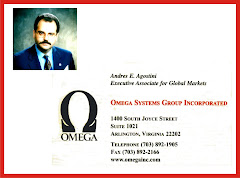


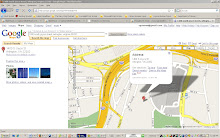


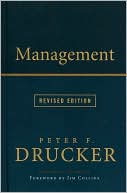
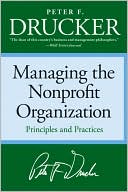

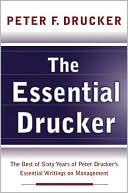
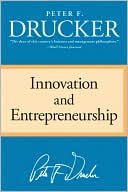
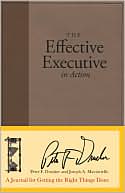
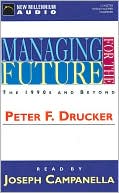
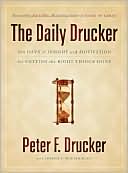
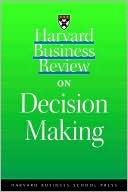
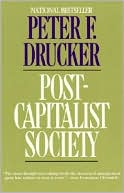

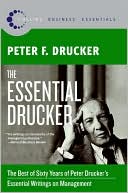
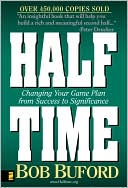
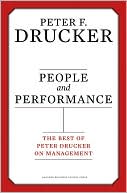
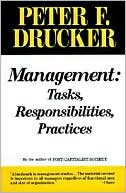
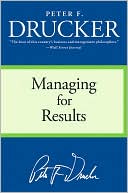

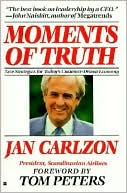
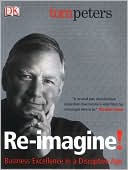

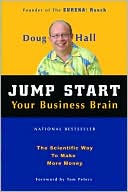
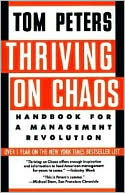

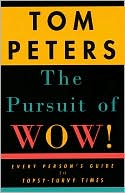
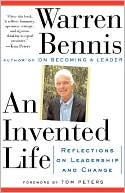
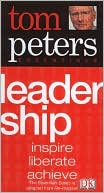
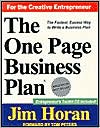
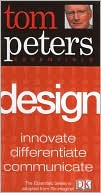
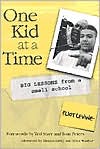
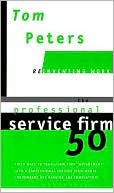
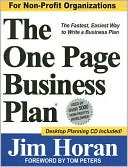





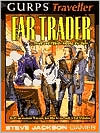
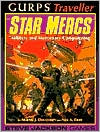
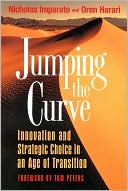
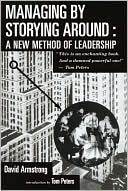
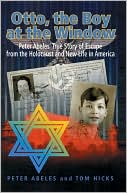
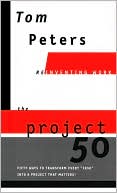
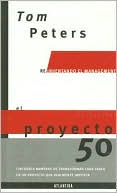
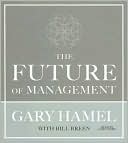


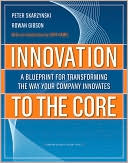

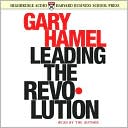
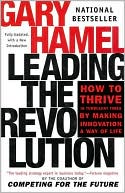
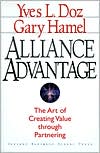



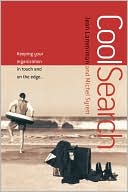


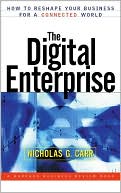
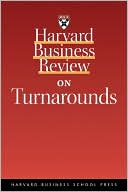
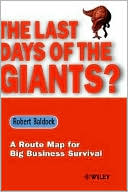

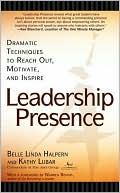
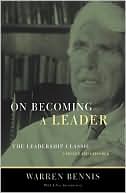
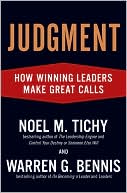
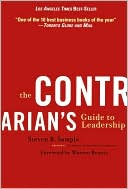
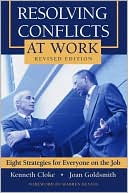
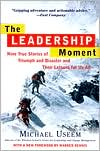
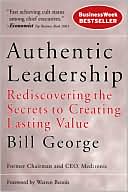
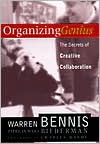

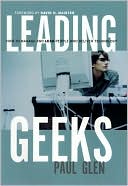
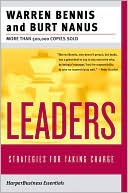
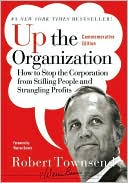
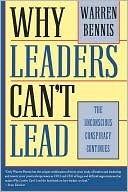
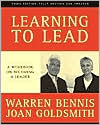
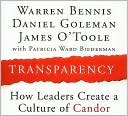

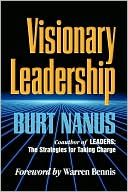
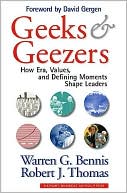

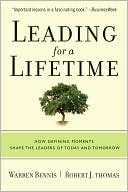


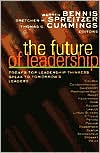
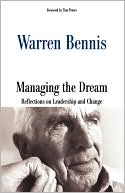
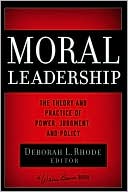
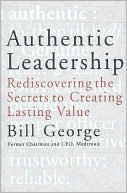

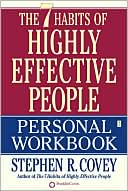
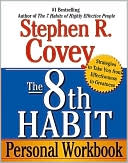
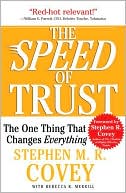
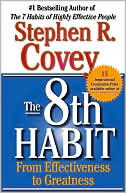
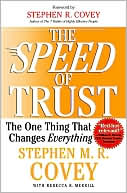
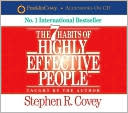
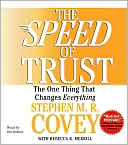
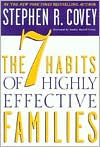
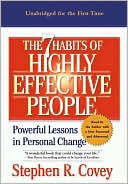
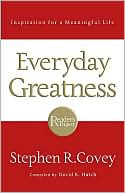

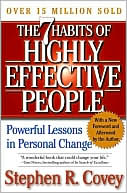
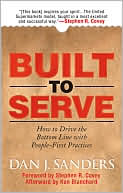
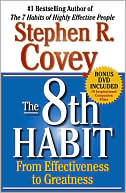
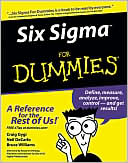
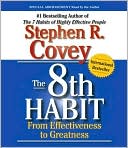

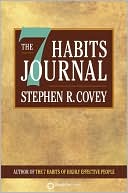
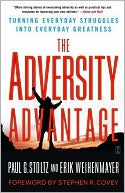

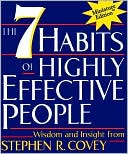
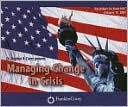

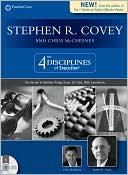


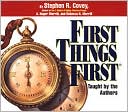
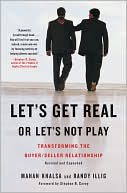
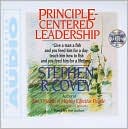



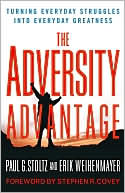
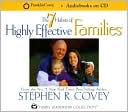

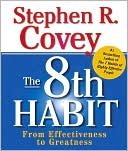


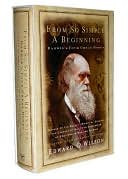
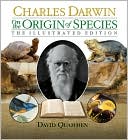
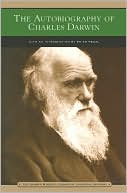







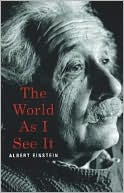
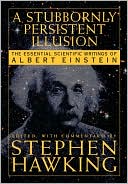


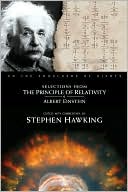
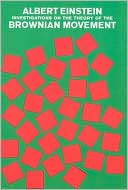
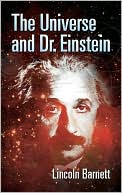









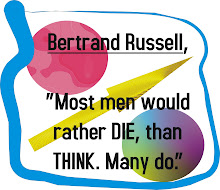
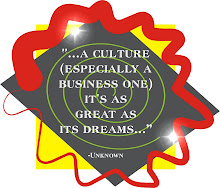
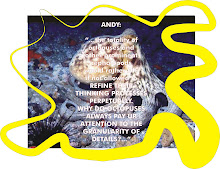
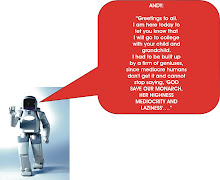
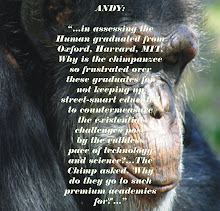


No comments:
Post a Comment